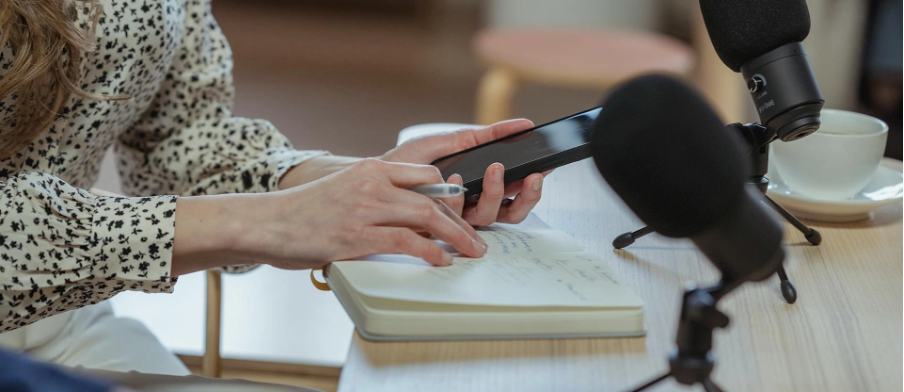Whether you speak on behalf of a business, an organisation, or an entire industry, you may be called upon to speak to a journalist. An interview of this kind can’t be improvised, and requires a good deal of preparation to avoid stress and ensure confidence. Interviewing is an art – and your approach will have to differ depending on the format, the interviewer, the publication, and the topic.So, when the big day arrives, what are the best practices to adopt? Journalist Cindy Nunes shares with us 4 tips for a smooth and successful interview.
Treat the interview as an active, constructive exchange
Remember, an interview is above all a dialogue. Don’t hesitate to establish a rapport with the journalist and take an active interest in the person you’re talking to, as this will greatly improve the exchange. It’s important to listen attentively to the journalist without interrupting and to understand the subtext beneath the questions so you can counter effectively.
By letting the journalist guide you and express their thoughts, you’ll also be able to take advantage of this time to think about a clear structured response that will be clearly formulated and suited to the journalist’s needs. There’s no need to rush; voice, intonation, gestures, and rhythm are all important elements to take into account.
Avoid self-promotion
It’s vital to be as objective as possible. Some spokespeople interviewed try to refocus the exchange on themselves, their business, or their product, but this usually comes across badly; it’s essential to show interest in the actual topic of the interview.
Stand out from the crowd
An interview should be used to convey the message or vision specific to the organisation you represent. It’s essential to keep abreast of current events in your field, while always remembering how it sets you apart from the competition. That’s where the journalist’s interest in the exchange lies: having a multiplicity of viewpoints for in-depth and unique interviews.
Clearly state your sources or refrain from quoting them
Rather than being imprecise, or putting forward figures/facts that are unverified and risk having them repeated by the journalist in their article, stick to reliable sources. This will also reinforce your credibility. It’s also a good idea to indicate during the interview that you can come back to the journalist at a later date with the sources, or mention who’s data it is, for example by saying “government figures”.

Cindy Nunes began her career in 2017 as an investigative journalist for Grand Angle Production before working as a journalist programmer for various structures and media, from La Chaine Parlementaire to Le Figaro and Le Point. Before joining the RMC team in September 2023 as a journalist-editor in the RMC Info web service, Cindy Nunes was a journalist at Europe 1, in charge of the News & Life vertical (social issues, health, well-being, ecology, environment), the publication of content on social networks and the 8:13 am Live Tweet.

